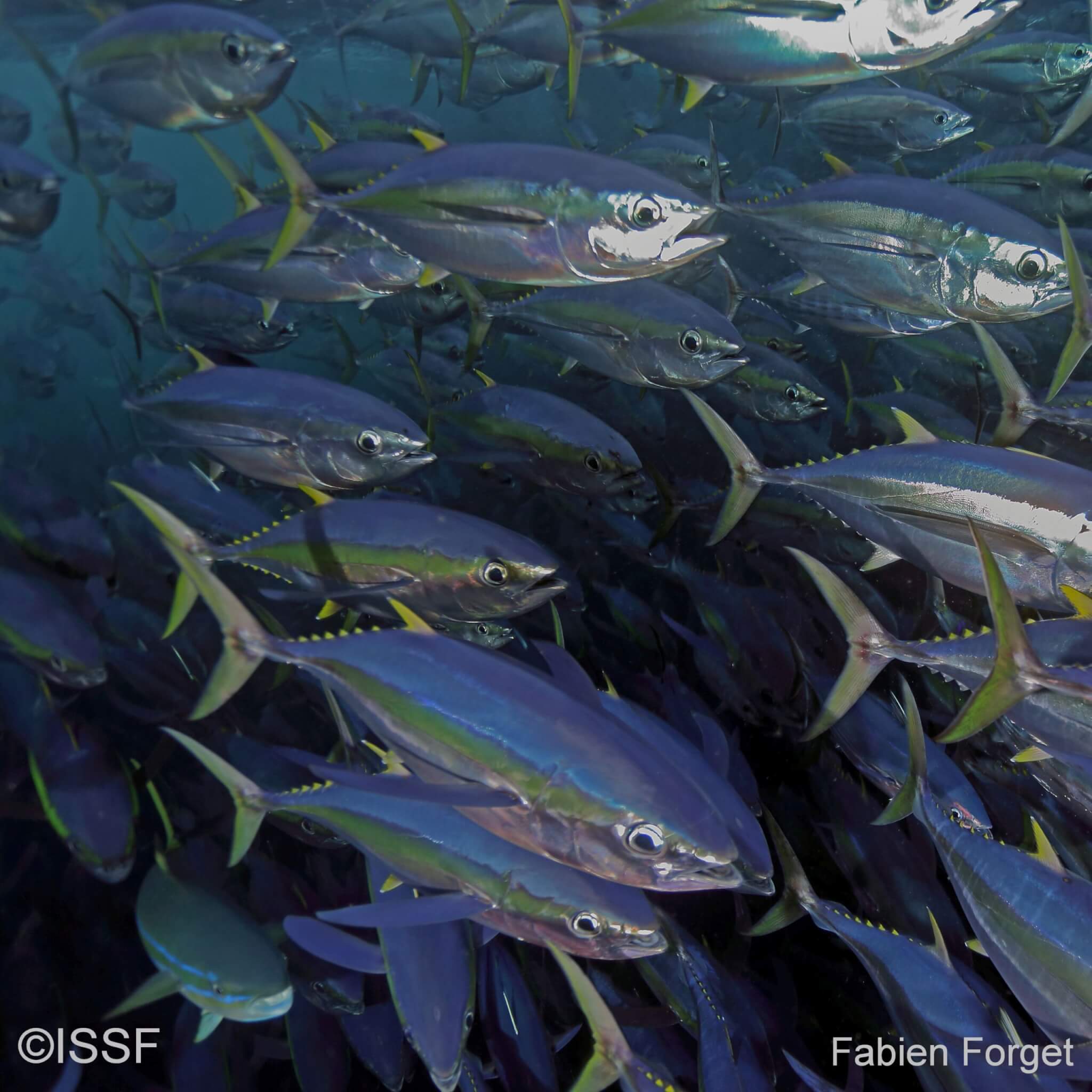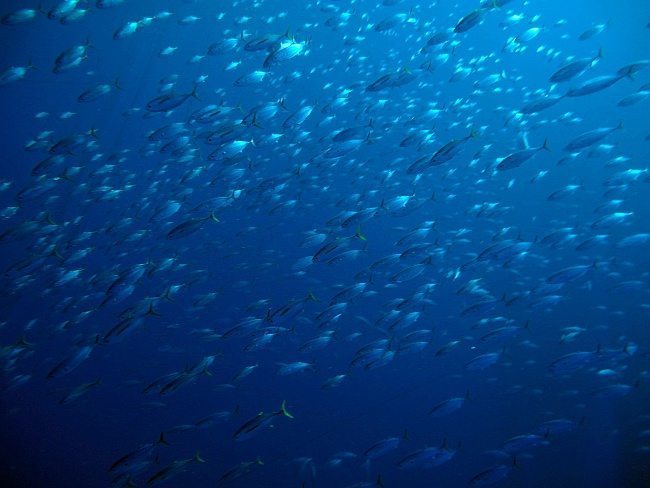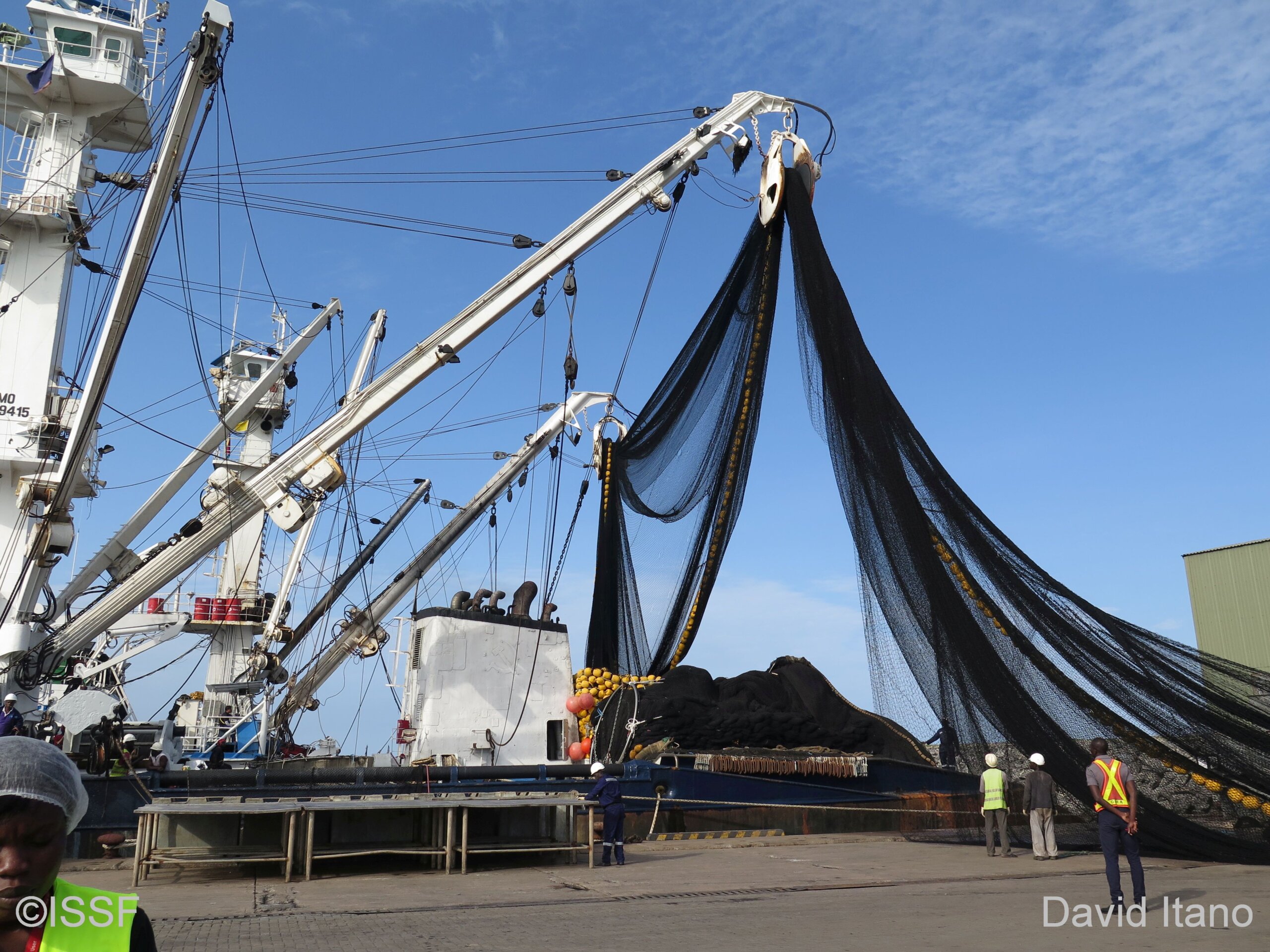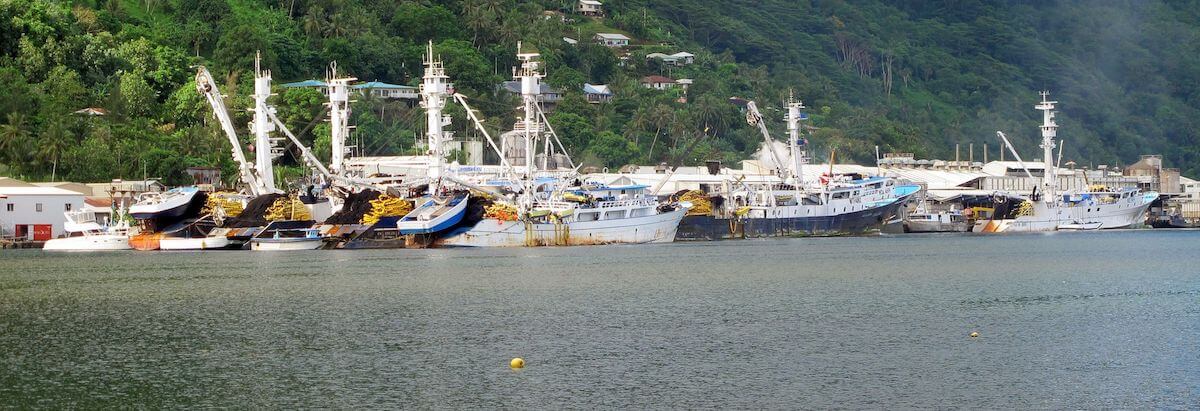
Regional Fisheries Management Organizations (RFMOs)
In many ways, ISSF supports tuna Regional Fisheries Management Organizations (RFMOs) in following scientific advice to protect and conserve tuna stocks, reduce bycatch, and improve the health of marine ecosystems.
We submit position statements and scientific papers to RFMOs, for example, and also host side events and present our research at RFMO meetings.
ISSF also identifies priorities for RFMO action and benchmarks RFMO policies against best practices in sustainable fishing.
The Role of Tuna RFMOs
Tuna are highly migratory, swimming through both international waters and waters belonging to many nations. To manage tuna stocks, countries sharing these resources joined together to create RFMOs. 
Five RFMOs worldwide oversee tuna fisheries management in their respective ocean regions. These “tuna RFMOs” have the legal frameworks, geographic scope, and membership to facilitate positive change across global tuna fisheries.
Member nations of these RFMO governing bodies are responsible for setting catch limits; monitoring stock health; and regulating data collection, on-the-water monitoring, and methods to mitigate fishing’s ecosystem impacts, among other issues.
TUNA RFMOS
The Commission for the Conservation of Southern Bluefin Tuna (CCSBT) is governed by the Convention for the Conservation of Southern Bluefin Tuna and is responsible for the management of southern bluefin tuna throughout its range.
The Inter-American Tropical Tuna Commission (IATTC) is governed by the Antigua Convention and is responsible for the management of tuna and tuna-like species in Pacific Ocean waters east of 150°.
The International Commission for the Conservation of Atlantic Tunas (ICCAT) is governed by the ICCAT Convention and is responsible for the management of tuna and tuna-like species in the Atlantic Ocean and adjacent seas.
The Indian Ocean Tuna Commission (IOTC) was established under Article XIV of the FAO Constitution and is responsible for the management of tuna and tuna-like species in the Indian Ocean and adjacent seas, north of the Antarctic Convergence.
The Western and Central Pacific Fisheries Commission (WCPFC) is governed by the 1982 Convention and the Agreement (The Law of the Sea and UNFSA) and is responsible for the management of tuna and tuna-like species in the Pacific Ocean west of 150ºW to the north of 4ºS and waters west of 130ºW to the south of 4ºS.
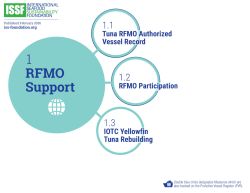
Conservation Measures to Support RFMOs
Several ISSF conservation measures were established specifically to support RFMOs and their regional tuna fleets in following best practices — specifically in vessel registration, listing, and authorization.
RFMO ADVOCACY PUBLICATIONS

Position Statements to RFMOs
Every year, ISSF produces Position Statements for RFMOs in advance of their policy-making meetings — outlining our recommended topics for discussion and priority actions for sustainable fisheries.

RFMO Best Practices Snapshots
As part of our policy and advocacy work, ISSF evaluates tuna RFMOs’ progress in implementing best-practice recommendations. Our “RFMO Best Practices Snapshots” (PDFs) cover compliance processes, IUU vessel listing, transshipment, and other fisheries management topics.
Industry Advocacy to RFMOs
Our feature story maps an “influence network” of sustainable-tuna stakeholders — including ISSF participating companies — across four tuna RFMOs.
RFMO Priorities
ISSF’s science and advocacy experts share concerns and advice for RFMOs in 2026.
Regional Tuna Catches
The five largest tuna catches in tonnes are Western Pacific Ocean skipjack, Western Pacific Ocean yellowfin, Eastern Pacific Ocean skipjack, Indian Ocean skipjack, and Indian Ocean yellowfin.

